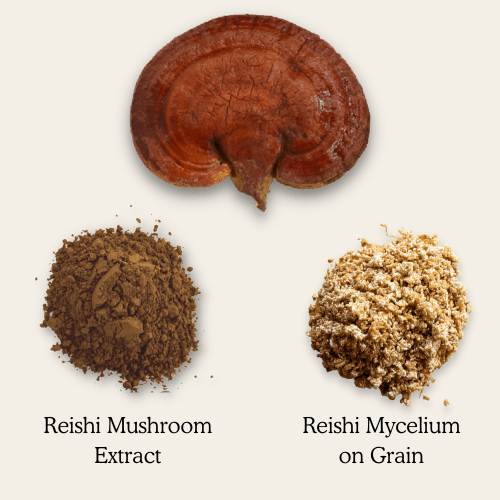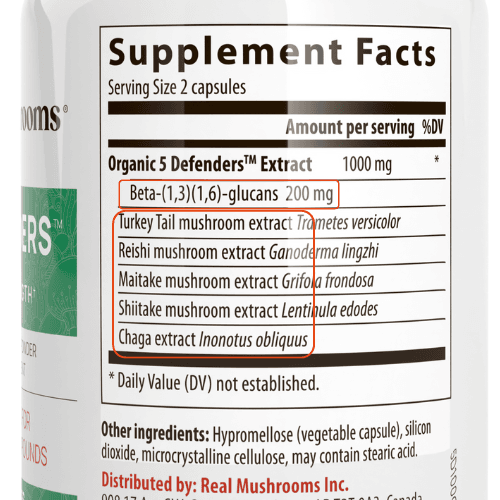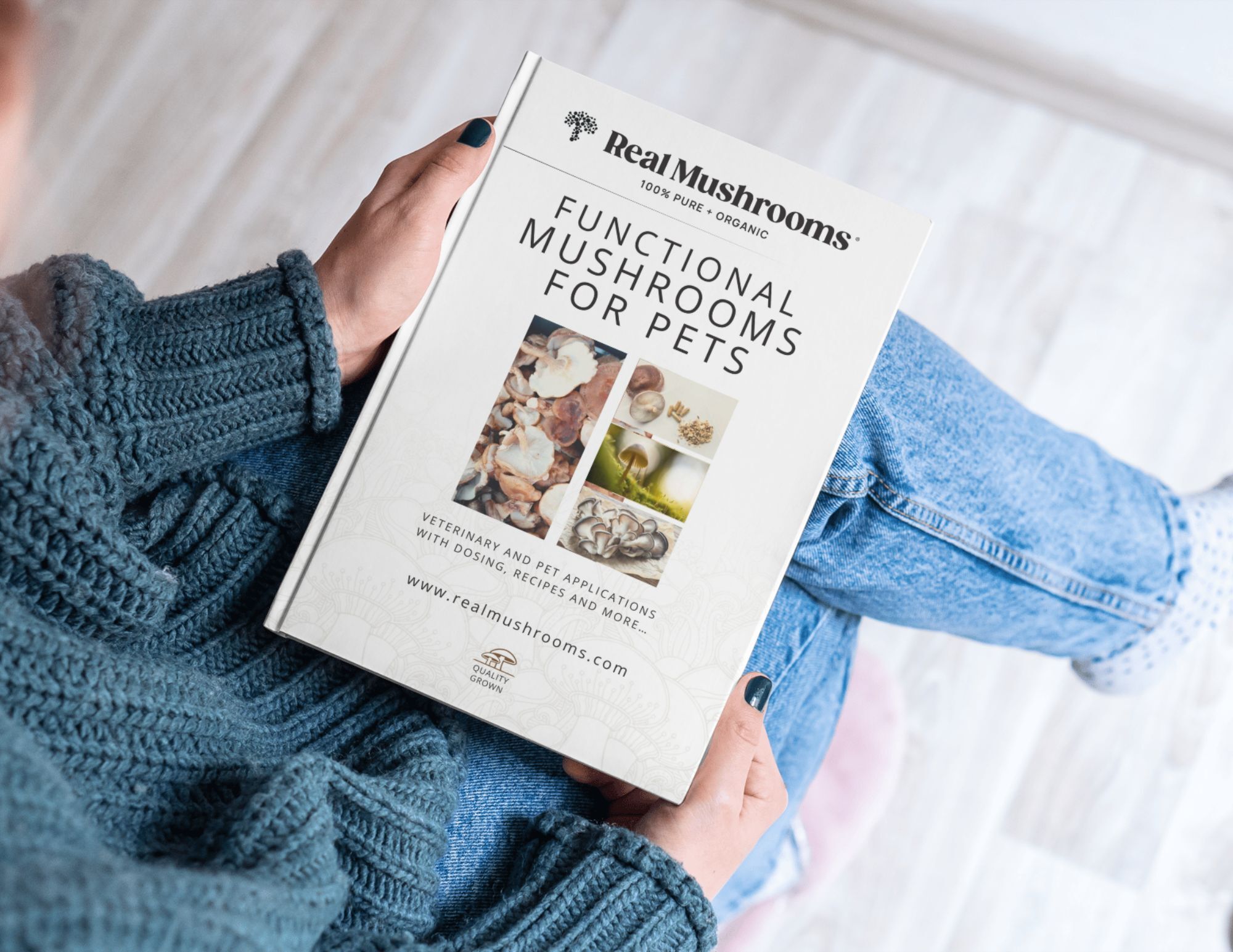Menu


Lack of transparency on labels for animal health products can result in a pet owner unknowingly buying a “mushroom” supplement that contains no actual mushrooms. This guide will empower you as a pet owner to select a mushroom product that will actually provide health benefits for your pet.
In recent years, the use of functional mushrooms as dietary supplements for pets has seen exponential growth. These remarkable fungi offer a wide array of health benefits, including immune support and potential antiviral properties.
However, it is essential for pet owners to be aware of the challenges surrounding the quality and transparency of mushroom products in the pet supplement industry. In this guide, we provide a short but comprehensive overview of what to be most aware of before purchasing pet mushroom supplements:
Unlike dietary supplements for humans, pet supplements are not subject to the same level of regulation by the FDA. This lack of oversight means that manufacturers can market their products without providing proof of quality control or ensuring transparent labeling. Consequently, pet owners face the risk of purchasing mushroom supplements that do not actually contain mushrooms, leading to potentially detrimental consequences for their pets' health.
One significant concern in the pet supplement industry is the growing availability of mycelial biomass products labeled as mushroom supplements. Mycelium is the vegetative stage of the fungal life cycle, while mushrooms are the fruiting bodies that contain the highest concentration of beneficial compounds. Mycelial biomass products are often derived from mycelium grown on grain (MOG), resulting in diluted mycelium content and higher levels of starch from the grain. These products may have reduced β-glucan content and lack the potent medicinal properties found in mushrooms. Additionally, some pet owners may feed their pets grain-free or low-carbohydrate diets, making mycelial biomass products incompatible with their nutritional preferences. It is crucial for pet owners to be aware of these differences and seek genuine mushroom supplements that provide the desired health benefits for their pets.

To ensure that you are making a well-informed choice when selecting mushroom supplements for your pet, it is crucial to pay attention to certain key factors. By considering the following guidelines, you can increase the likelihood of finding high-quality products:

The National Animal Supplement Council (NASC) plays a crucial role in promoting responsible practices within the animal supplement industry. When searching for pet supplements, look for the NASC Quality Seal on product labels. This seal indicates that the company has passed independent audits and adheres to strict guidelines, including proper labeling, quality control, and an established adverse event reporting system.
To address the challenges surrounding the quality and transparency of mushroom supplements for pets, there is a need for industry-wide improvements. Currently, there are no specific guidelines or regulatory language that differentiate between mushroom and mycelial biomass products for animal health. This lack of clarity can lead to confusion among pet owners and potentially compromise their pets' well-being.
Advocating for regulatory changes that ensure accurate labeling and standardized quality control measures is paramount. Organizations such as the NASC can play a pivotal role in establishing guidelines and working alongside regulatory authorities to ensure the safety and efficacy of pet supplements.
Mushrooms contain a rich array of bioactive compounds, with β-glucans being one of the most notable. Supplementing your pet’s diet with high-quality mushroom extract products can help support a number of their body’s systems, including their immune system. With mushrooms to support their health, you can help your loving fur baby to live a longer, stronger life.
You can gain a more in-depth understanding of the points outlined above by reading this article.
Learn more about the specific ways that mushroom supplements support pet health:

Disclaimer: The information or products mentioned in this article are provided as information resources only, and are not to be used or relied on to diagnose, treat, cure, or prevent any disease. This information does not create any patient-doctor relationship, and should not be used as a substitute for professional diagnosis and treatment. The information is intended for health care professionals only. The statements made in this article have not been evaluated by the Food and Drug Administration. Any products mentioned are not intended to diagnose, treat, cure, or prevent any disease. The information in this article is intended for educational purposes. The information is not intended to replace medical advice offered by licensed medical physicians. Please consult your doctor or health practitioner for any medical advice.

– Plus, Enjoy Exclusive Tips and Updates with Our Real Mushrooms for Pets Newsletter